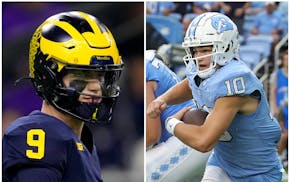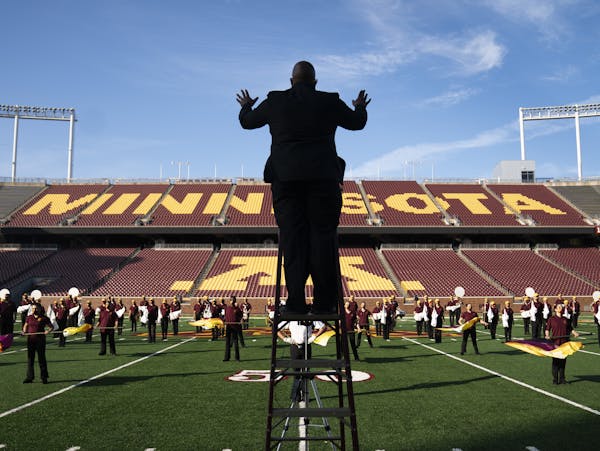The college football season for the largest Division I conference kicks off this week, more than a month later than other leagues, yet still two weeks ahead of another Power Five brethren.
Disjointed does not begin to describe the precarious nature of playing a football season on campus during a pandemic. Clemson has a five-game head start on Ohio State in the charge toward a national championship. Oregon, which has playoff aspirations as well, opens its season a few days after the election.
If all goes according to plan — if that expression even exists anymore — the ACC will play 11 games, the Big Ten nine and the Pac-12 seven.
From this chaos, the College Football Playoff committee will be tasked with selecting the four best teams to compete for a championship. Best might not be the correct adjective to describe the eventual winner this season. How about luckiest?
COVID-19 already has caused major disruptions in the first month of competition. Games have been postponed. Teams have been forced to play shorthanded without key players. Coaches have missed games after testing positive. A team's outlook could shift dramatically based on availability of players.
"This is a completely different animal," Gophers coach P.J. Fleck said Monday. "It's preparing for ghosts, preparing for the unknown. You just have to be ready for it."
Football coaches, by nature, are control freaks. COVID-19 has stripped away part of their control. Avoiding locker room outbreaks requires an element of luck as much as precaution and diligence.
The Big Ten will attempt to play nine games in nine weeks, which sounds implausible, if not impossible, based on logic. I'd put the odds at 25% that all 14 teams play all nine games. Cancellations seem inevitable, no matter how much testing and safety protocols are available to protect players, coaches and support staff.
Encasing 100-something players inside a bubble wasn't realistic. Even the most disciplined teams in avoiding situations that could expose them to the virus are susceptible to outbreaks because of the sheer number of those involved in the operation.
The Big Ten left itself zero cushion in the schedule to accommodate postponements. It's either play the game or cancel at this point. The league established thresholds in positivity rates to determine if a team has too many cases to practice or play.
The Big Ten's return-to-play guidelines are especially stringent. Any player who tests positive must sit out 21 days of competition at a minimum before returning. That's three games, or one-third of the schedule.
That could wreak havoc on game plans, preparation and roster management. A third-team backup could become a starter overnight. If you're someone who enjoys betting on college football, I'd suggest finding a different sport to wager on.
Imagine this scenario: A team's starting quarterback tests positive Friday. He's automatically unavailable for three games.
Or this scenario: A team loses six starters in one week.
Or this: A team loses its head coach or one of its coordinators for a game or two.
Those are not far-fetched scenarios. Virginia Tech played Duke without 21 players and several coaches in Week 2. Some of those absences were injury-related, but many of them presumably had tested positive. Purdue coach Jeff Brohm won't be on the sideline for his team's opener against Iowa after testing positive.
Pac-12 announces cancellation, tiebreaker rules
"Is it a little bit nerve-wracking at times knowing who's going to play and who's not — who you give the reps to and then all of sudden you find out on Thursday or Friday that they can't play for three weeks — yeah that can be a little bit nerve-wracking," Fleck said. "But you respond."
Fleck also described the unsettled aspect as "exciting," which is true in a weird sense. College football is always a thrill ride, and that excitement has not disappeared. The first month of games has already provided the usual dose of wacky moments. But the vibe has been different. No denying that.
The underlying uncertainty is always present. You keep wondering which team is next. Wins and losses very well could hinge on what takes place off the field as much as what happens on it.

Scoggins: Finch feeling heat of the Suns as playoff battle looms
Scoggins: Why 'championship or bust' fits these Wolves

Scoggins: Anatomy of a game-saving play as Correa throws out Ohtani


